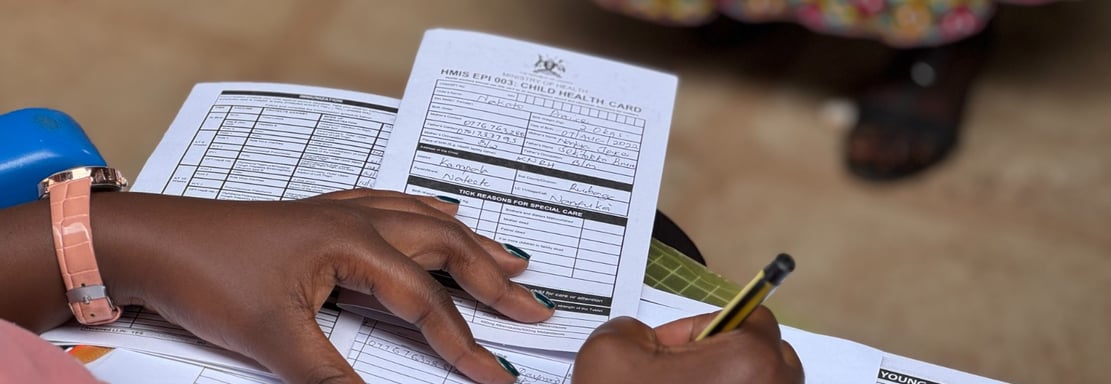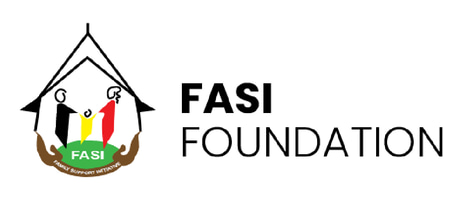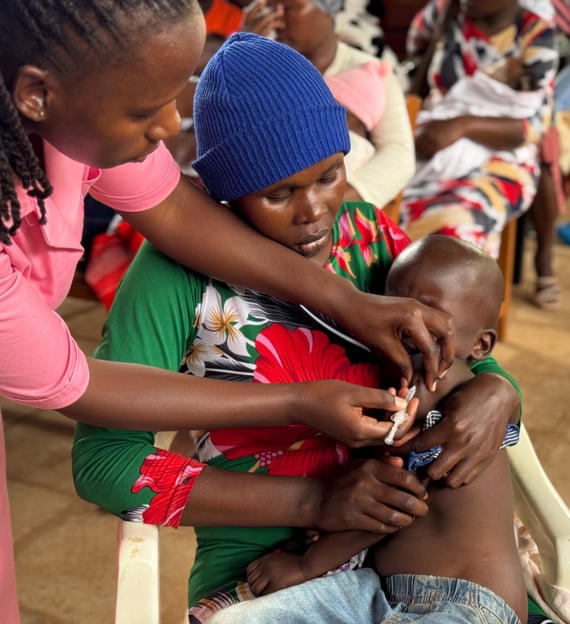The Issue
In many rural and underserved communities, thousands of children remain “zero-dose” (i.e., never having received any vaccines), under-immunized, malnourished, or lost to follow-up in HIV/TB care programs. These children are at high risk of preventable illness and death. Major barriers include lack of awareness, long distances to health facilities, stigma, and financial hardship that prevents caregivers from seeking timely medical support for their children.
The Response
Thrive Health Link partners with local Village Health Teams (VHTs) and Community Resource Persons (CRPs) to bridge the gap between vulnerable children and the healthcare system. The project uses a proactive, community-based approach to identify children at risk and connect them with necessary health services. To encourage consistent follow-through, Thrive Health Link provides conditional cash transfers and in-kind incentives (such as food items or hygiene kits) to caregivers, rewarding them for attending health appointments and ensuring follow-up care.
Objectives
Identification: Enroll zero-dose, under-immunized, malnourished, and HIV/TB-exposed or infected children in target communities.
Referral & Linkage: Ensure timely referrals and successful linkages to nearby health facilities.
Retention in Care: Increase rates of follow-up and adherence to vaccination, nutrition programs, and HIV/TB treatment.
Barrier Reduction: Alleviate financial and motivational obstacles through incentive-based support systems.
Community Empowerment: Strengthen the capacity of VHTs and CRPs to monitor, refer, and support families at risk.
Methodology
Community Mapping: Local health teams identify high-risk zones and households using demographic data and field surveys.
Household Visits: VHTs and CRPs conduct door-to-door screening to identify eligible children.
Referral System: Identified cases are registered and referred to the nearest health facility using a structured tracking form.
Incentive Distribution: Caregivers receive conditional incentives upon confirmed attendance at health visits and follow-up appointments.
Monitoring & Follow-up: Send SMS/phone call reminders to remind caregivers about their next appointments hence reducing defaulter rates
Training & Support: VHTs and CRPs receive training and resources to ensure effective case identification, data recording, and counseling.
Get In Touch


We’d love to hear from you! Reach out for inquiries, partnerships, or support for our mission.
Join us in empowering vulnerable communities today.
Connect
© 2025 FASI FOUNDATION. All rights reserved.


Working Hours:
Monday – Friday | 8:30 AM – 5:00 PM EAT
Head Office:
Rubaga Road, Kampala, Uganda


